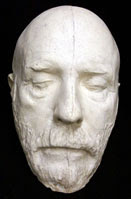Although I know little about Longstreet, the history problems and treatments surrounding McClellan taught me that we have an ACW-wide problem. This is not about McClellan, it's about absolutely everyone - Lee, Davis, Lincoln, Grant, Rosecrans, Longstreet, etc.
The mistake I feel some of our McClellan advocates make is to think that ACW history is in good shape except for this little piece regarding Mac. No. It's all in the same shape. The patent nonsense pertaining to GBM is pervasive and universal. This is the one thing that the case of McClellan has taught me - it's all bad.
That doesn't mean we can't enjoy it. The areas we are ignorant in might be just as entertaining to us as a severe Mac trashing is to a similarly uninformed reader.
Now there is a moral dimension to this in that *bad history* for Lee might unjustly enhance his reputation (no harm done) while bad for Mac or Longstreet vilifies them unjustly (moral harm done). So the effects of bad history are different and GBM has been badly and unjustly affected by the same evil factors pervading the whole field.
It would be hard to put those evil factors in a nutshell. That's why I started Civil War Bookshelf 10 years ago, to explore the problem.
You mention North and South. The glossies are the worst: they seem to condense all the faults of the book world into their magazines. A colleague ... proposed a McClellan defense to the editor of N&S some years ago and was directly told no piece defending McClellan would ever appear in that magazine.
The best short answer I can manage is that we are all hobbyists; even the accredited historians and professors start out that way. We have a lot of bad baggage we bring to ACW both reading and writing. We need to work harder on challenging our authors on the basis of assumptions, sourcing, shortcuts, and narrative overdetermination.
5/18/2012
Justice for Longstreet
A correspondent asked if I felt whether Longstreet suffered the same injustice as McClellan at the hands of the glossy mags. I don't read the glossies, but I answered this way:




